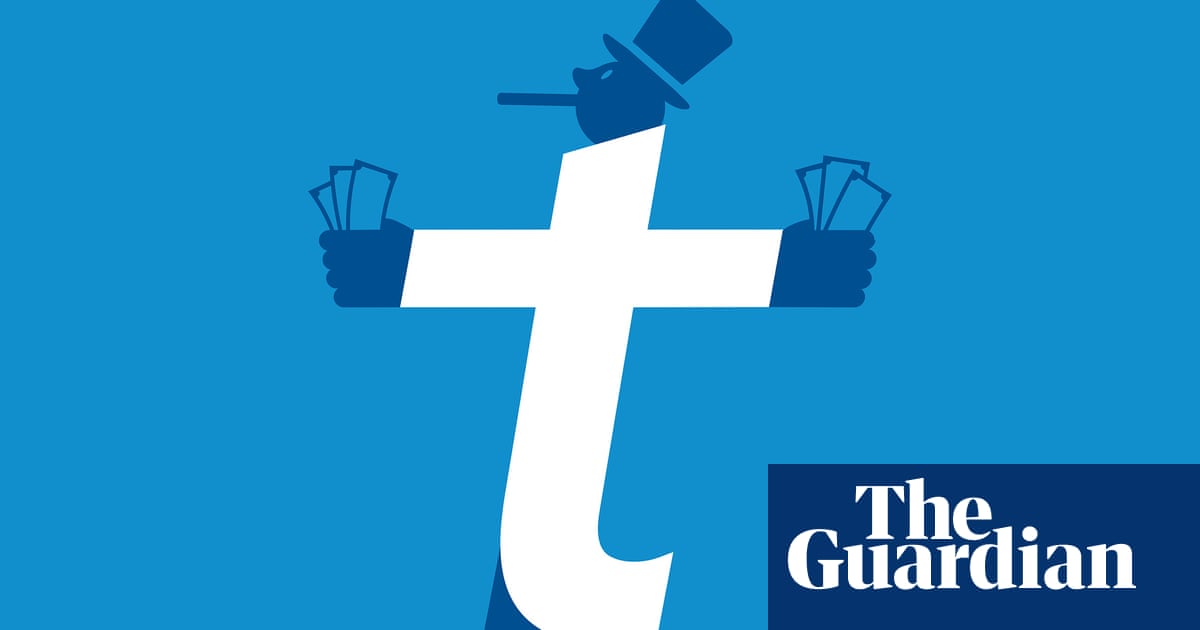You may know the drill. You get online at 10am, several months before the show, and receive a place in the virtual queue. Perhaps you notice with dismay that your number is larger than the capacity of the venue. Perhaps you then lose your place because you’ve been misidentified as a bot, or the site crashes altogether. If you make it to the front, you may well wonder why £100 (plus about £20 in opaque surcharges) now qualifies as a cheap seat. And that’s if there are any cheap seats left, not just inflated VIP packages. And you may ask yourself why it has to be like this.
When you don’t get what you want, you tend to look for someone to blame. That someone is usually Ticketmaster. The company, which merged with concert promoters Live Nation in 2010 to form Live Nation Entertainment, sells about 70% of all concert tickets worldwide, and an even greater proportion of the arena and stadium market. In 2024, Live Nation generated a record $23.2bn (£17.5bn) in revenue, with Ticketmaster selling 637m tickets. Rivals such as See Tickets (owned by Germany’s CTS Eventim) and AXS (the ticketing arm of promoters AEG Presents) aren’t exactly minnows but Ticketmaster has become a synonym for ticketing: a lightning rod and a punchbag.
In the US, Ticketmaster’s current problems stem from a cardinal error: getting on the wrong side of Swifties. In November 2022, the company failed to stagger the presale for Taylor Swift’s Eras tour, listing all 2m tickets simultaneously. The colossal demand overwhelmed the servers, causing myriad problems. Swift expressed her disappointment. Ticketmaster grovelled. Last May, the US justice department (DOJ) filed an antitrust suit, now backed by 39 states, which alleges that Live Nation and Ticketmaster use their “power and influence … to freeze innovation and bend the industry to their own benefit”.



Yeah, no. They were entirely a product, based on The Beatles Success. Drummer couldn’t even play any instrument before they went on tour.
Yeah and Justin Bieber’s early music outsold Outkast.
You can like corporate produced slop, targeted to get mass mainstream appeal. That’s what it’s for that doesn’t make it good though. Case and point, approach a stranger on the street and ask them to name as many songs by The Beatles, or The Stones, or The Kinks and then the Monkees and see what has actual staying power because I guarantee you it’s not The Monkees. Music is the most invasive artform in the world, you don’t get a choice, out in the world if people are playing something you don’t like. That’s why people galvanise so strongly around likes and dislikes. It’s not I don’t care for U2, it’s I hate U2 and vice versa. You subconciously redirect your emotional state at the time, onto the music you listen to. Why do you think so many dudes wind up listening to the music their Parents liked as they get older, it reminds them of better times. Mass appeal in the short term is strictly for profit. That’s what The Monkees were for. We don’t have to debate this, we all know this and record companies have been buying their own songs to make them number 1 since the beginning of Tin Pan Alley. So, they outsold The Beatles one year, means nothing. There are people born within the last 20 years that can sing along to the entire tracklist of Sgt. Pepper’s. Which came out 50 years before they were born. But you’re a Monkee, so of course you’ll Monkee around.